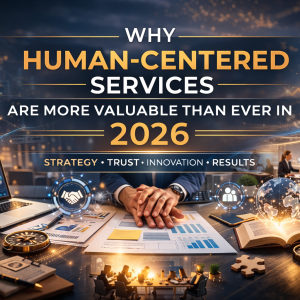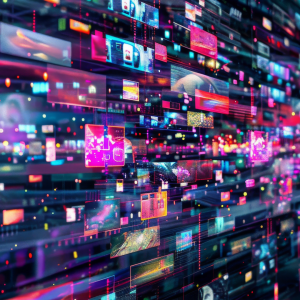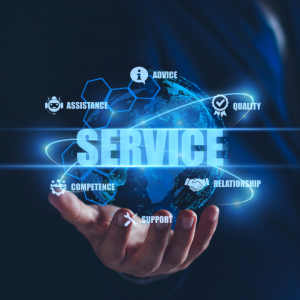As AI and automation redefine convenience, the service world must ask: what happens to the humans left behind?
In the ever-evolving world of service industries, automation is no longer a futuristic concept—it’s here, it’s expanding, and it’s transforming everything from fast food lines to customer service desks. Whether it's a robot taking your coffee order, an AI chatbot handling your complaint, or an algorithm determining staffing schedules, the march toward efficiency is relentless.
But this rising tide of tech raises urgent questions: How far is too far? What do we gain—and what do we lose—when machines take over roles that used to be deeply human?
At Servicingpedia, we track these transitions, spotlighting both the innovations and the ethical crossroads. Our mission is to help individuals and businesses understand not just what’s possible, but what’s right.
🤖 The Rise of Automation in Service Industries
Across the globe, automation is being deployed to solve labor shortages, reduce costs, and improve consistency. AI-driven scheduling apps, robotic food prep systems, and fully automated retail checkout experiences are now more common than ever.
According to The Guardian’s piece on AI and service work, the service sector—traditionally built on interpersonal interactions—is now at the heart of an automation revolution. The article highlights growing concerns about:
- Job displacement in low-wage service roles
- Dehumanized customer experiences
- Biases in algorithmic decision-making
- Lack of regulation around AI implementation
While businesses reap the benefits of cost-cutting and scalability, many workers find themselves displaced or re-trained into roles that require fewer soft skills and more machine maintenance.
🧠 Automation Has Limits—And Consequences
In its analysis, MIT Technology Review’s article “The Limits of Service Automation” draws a clear boundary between what technology can do and what it should do. While machines excel at predictable, repetitive tasks, human intuition, empathy, and ethical reasoning remain irreplaceable in many contexts.
The article outlines areas where automation still struggles:
- Handling emotionally charged customer interactions
- Adapting to unpredictable environments
- Maintaining cultural sensitivity and personalization
MIT emphasizes that over-automation can alienate users, create accessibility gaps, and contribute to what it calls the "digital cold shoulder" — a phenomenon where customers feel dismissed or misunderstood by robotic systems.
⚖️ Ethics, Convenience, and the Line in the Sand
So, where do we draw the line? The answer lies in striking a balance—one where automation enhances human services, not replaces them. Consider these core ethical pillars:
✅ Transparency: Customers and workers should know when they’re interacting with AI
✅ Choice: Users must have the option to speak to a human when needed
✅ Fairness: Automation must not exacerbate social inequalities
✅ Responsibility: Businesses should be accountable for their AI’s decisions
📘 How Servicingpedia Helps Navigate the Human vs. Automation Debate
At Servicingpedia, we are more than just a service directory. We’re a resource hub for the future of services. We analyze where human effort meets digital efficiency—and help people make informed choices about the services they use, offer, or invest in.
Here’s what we provide:
🔍 Comparative Industry Insights
We compare automated and human-led models across food, hospitality, retail, tech support, and more.
📊 Case Studies & Trend Reports
Learn from real-world examples of successful (and failed) automation rollouts—what worked, what didn’t, and why.
🧠 Ethical Service Spotlights
We feature businesses that prioritize ethical automation, creating responsible models others can learn from.
📚 Educational Articles & Thought Leadership
Like this one! We break down the big ideas behind today’s evolving service dynamics—making it digestible and relevant to all.
🌐 It’s Not Just About Speed—It’s About Impact
In 2025, automation isn’t slowing down. But as consumers, service workers, and business leaders, we can guide where it goes. By focusing on ethics, transparency, and human dignity, we can build a future where services are not just efficient—but meaningful.
Let Servicingpedia help you stay ahead of the shift. Because in the end, great service isn't just what gets done — it's how it makes people feel.
📖 Explore the ethical future of services at Servicingpedia
Where technology meets humanity—with insight, balance, and purpose.






